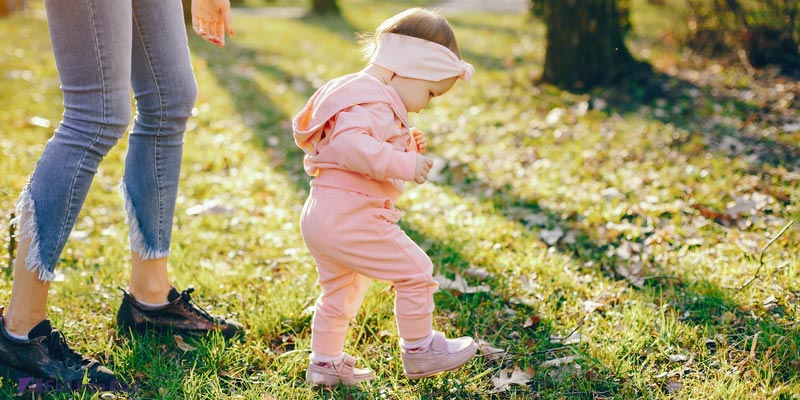Sleep regression in babies happen when a change occurs in their sleep schedule. They suddenly start waking up in the middle of their sleep, have difficulty falling back to sleep and experience changes in their sleep cycle. This process can be frustrating for the baby and you as their parent. So in this article we we go over the signs and causes of a 15 month-old sleep regression and talk about how we can handle these times.
Is there a 15 month-old sleep regression?
Well, yes! there can be sleep regression at this age, though it’s not the most common age for this issue. Babies mostly experience sleep regression at 10 month, 8 and 4. And some can have it in month 14, 15, 18 and 24. You can check out the recommended sleep schedule for your 10 month old here.
At this age, your baby might start resisting naps and have a change in their sleep cycle. Ans though it might feel like it’s never going to end, the phase will end after a few weeks.
How much sleep do 15 month-olds need?
Essentially, at this age your baby should get between 12-15 hours of sleep in a 24-hour cycle. It’s usually divided to a 10-12 hours of night-sleep and 2 to 3 hours of nap during the day. You can check out sample sleep schedule for your 15 month-old here.

Causes of 15 month sleep regression
1. Developmental milestones
Babies have a very fast developmental rate in the first 2 years of their life and each milestone can bring changes to their sleep schedule. At this age your baby is developing their fine and gross motor skills and cognitive skills. According to child development milestones1, they have probably just learned how to walk or take a few steps on their own. This achievement brings them a lot of excitement. They get more independent with walking, and get more eager to imitate your movements, play more often and experiment more. It’s also expected of them to talk a word or two at this age.
These changes in their development makes it difficult for them to fall asleep as the excitement for their new skills is arising.
2. Separation anxiety
Separation anxiety happens around the age of 3 months all the way to 3 years, and they will grow out of it, as it’s a part of their development.2 At this time babies get more clingy and cry more often if they see their parents leave them, even for a very short time.
This can make bed time even more challenging as they refuse to fall asleep without their parents being there with them. Or they might wake up in the middle of the night and cry, when they don’t see their caregiver nearby. At this phase, they can get used to falling asleep only when they’re held in their parents’ arms, which might be a problem later, when they refuse to sleep independently.

3. Teething
One of the most important reasons of sleep regression in babies, is the process of teething. Basically, teething can affect your baby’s sleep schedule. In some babies, teething can make them more tired and increase their sleep, whereas in some babies, it can decrease their sleep and lead to sleep regression.
4. Environmental changes
Any sudden change in your baby’s routine can and will affect their sleep schedule. Transitions like moving to a new house, travelling and starting day-care can lead to sleep regression.
Signs of sleep regression in 15 month-olds
Even though, signs of sleep regression can slightly vary in each baby, it’s important to know the symptoms and differentiate them from other reason why your baby might start sleeping less.
Sudden change in sleep pattern and schedule
They start waking up more frequently during the night and it’s not that easy to put them back to sleep. Also their naps will get shorter during the day and their overall sleep time will not reach the normal 12-15 hours a day.
More crying
Their fussiness and clinginess increases during this time and they cry more often especially when it’s near their bed time. Some babies even refuse to sleep in their crib.
Developmental progress
As it was mentioned, if your baby is learning new skills like walking, talking and other motor and cognitive skills, their sleep schedule can change.
How long does this sleep regression last?
Though it might feel like forever, the 15 month-old sleep regression doesn’t last that long. It should only last between a few days to 1-2 weeks.
How to deal with the sleep regression
It’s important to know the signs and causes of sleep regression, so that we can control this the phase in the best way. There are several ways we can handle this time:
- Stablish a consistent bed time routine. A consistent sleeping plan can help your baby to get in to a sleepy mood right before bed. You can also use different cues and techniques to put your baby to sleep in under a minute.
- Maintain a calm sleep environment. It’s important for the bedroom to be dark and quiet. Try to control the temperature between. Also make sure your baby is in a comfortable and safe sleep position.
- Provide comfort for teething pain. If your baby is in their teething phase, you can provide teethers to help with their pain.
- Let them practice their new skills during the day. This way they can make them less excited for learning before bed.

Wrap up
We all know how difficult and frustrating it is for your baby and you as the caregiver, to go through sleep regression. However, by knowing the signs and causes, and ways to handle this phase, you can get through it more easily and spend more quality time with your toddler.
Sweet long-lasting dreams!
Sources:








